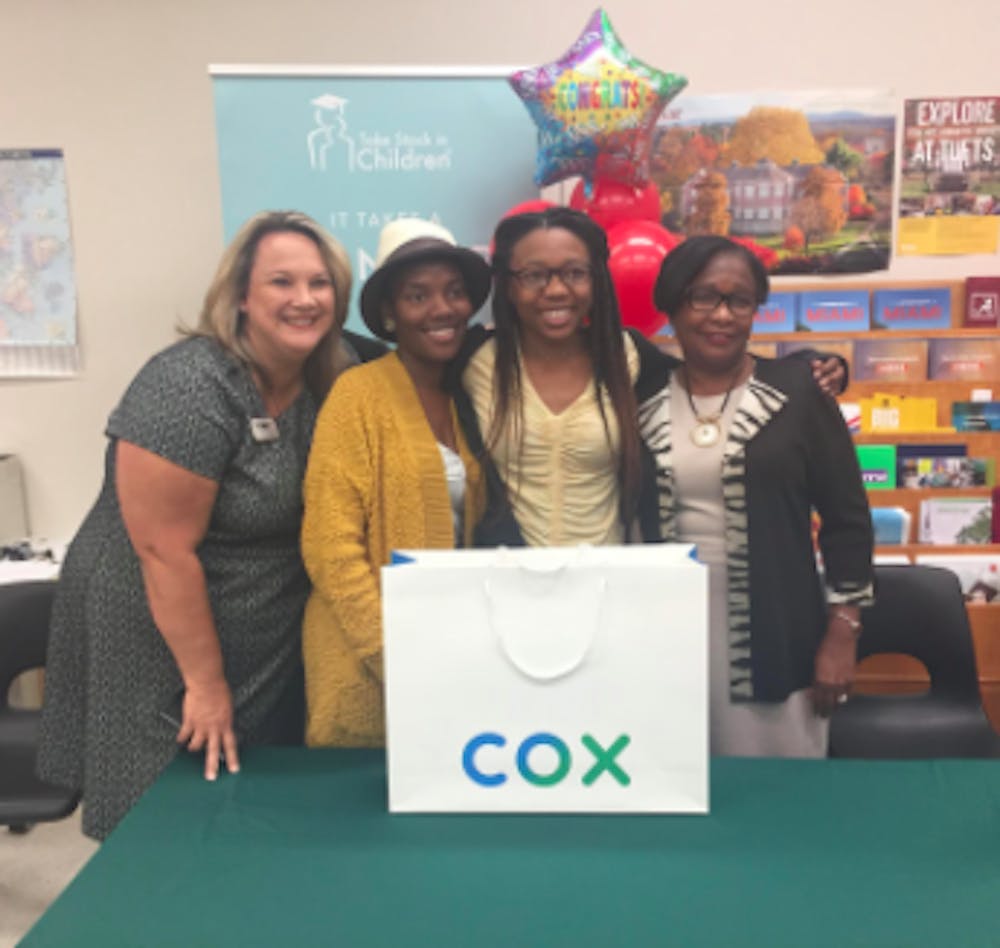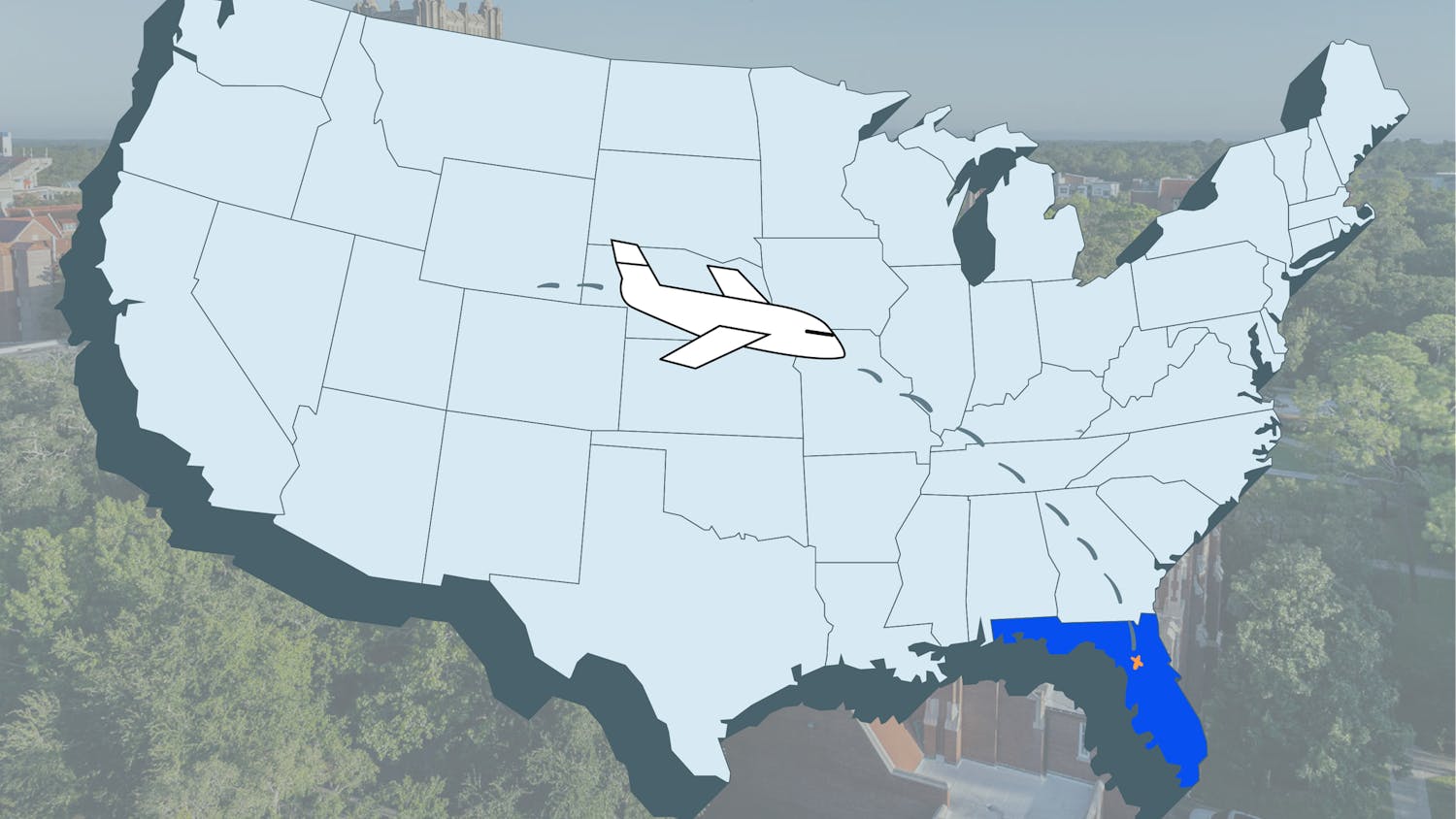Eight months since Alachua County Public Schools went virtual due to COVID-19, students continue to struggle with the change.
With many students still not physically back in schools, education morphed to fit into an increasingly virtual world through digital or hybrid learning. Even in brick-and-mortar classrooms, digital access is a necessity.
Nationally, about one quarter of all school-aged children are estimated to lack internet or devices, according to the National Education Association. More than 10% of households with a child in public schools within Alachua County don’t have broadband internet subscription, according to 2014-18 statistics from National Center for Education Statistics. On top of this, about 6% of those households lack a computer.
ACPS distributed about 7,000 laptops and iPads this school year to combat this technology gap, ACPS spokesperson Jackie Johnson wrote in an email. This is an increase from 2,300 computers in September. Computers are lent out free of charge to families.
Schools work with parents who need help, she wrote. After schools closed in the spring, ACPS used parked school buses with hotspots to provide internet access in high-needs areas with students living in poverty. Buses visited places such as Porters Community Center and Faith Baptist Church. With schools back in session, there aren’t enough buses to park to provide hotspot access, she said.
To further bridge the gap, the Education Foundation of Alachua County and the Community Foundation of North Central Florida teamed up to create a Community Connectivity Fund, which will go to students and schools to address the technology gap.
The fund launched Oct. 27 and helps with access to digital devices and internet connectivity by providing funding to purchase technology like laptops and hotspots.
COVID-19 exacerbated access challenges, said Rachel Debigare, executive director of the Education Foundation of Alachua County, a Gainesville nonprofit that serves ACPS students.
Staff works with public school students and the district, she said. One element of the nonprofit is mentorship from professionals. When mentorships went digital, it was clear that not everyone has equal access to the internet and technology, she said.
With schools, libraries and other public places with free WiFi closed, it was hard to get in touch with some students, she said.
“Are they able to connect with their teachers?” she asked. “Are they able to download the content? Are they able to perform their homework? Which obviously in turn, it affects their achievement and their grades and their progress, and so it just definitely became something that we really started to tune into more.”
Now, Debigare said, the program is working to solve immediate problems and broaden the reach of whom they can help.
The ultimate goal is to provide technology on a 1:1 ratio, Debigare said. The purchases would likely be done through the school district, so they can be checked out and families could continue to access technology support through schools.
The COVID-19 pandemic has made the lack of access to online resources critical for a large portion of the community population, said Barzella Papa, president and CEO of Community Foundation of North Central Florida.
“The goal is to just make sure those who are underserved have the capacity to stay connected,” Papa said.
Even before COVID-19, many teachers in schools expected students to work on a laptop while in the classroom, said Tedreyonce' Moore, a 17-year-old senior at Eastside High School and dual enrollment student at Santa Fe College doing hybrid classes.
“I wasn’t really able to fulfill the things I had to do in class,” she said.
Before receiving a laptop in Fall 2019 through Take Stock in Children, a mentorship program of the education foundation, Moore would have to wait until she got home to do her assignments on her family’s desktop computer.
Now, Moore can join her peers doing work in class. She said she is able to complete assignments on time. On days when her brother had after school basketball practice, she could bring her work with her.
Technology is essential, Moore said. Without it at home, students are limited, she added.
While she said she doesn’t enjoy online classes, she said she felt more equipped during the transition to online learning with COVID-19. Her brother uses the family computer and she uses her laptop.

Breonshea Speed-Jackson, right, stands with her mentor Tammy Stuve, a Gainesville High guidance counselor, after receiving her laptop.
Gainesville High School senior and Santa Fe College dual enrollment student Breonshea Speed-Jackson, 17, had a family computer, but it was slow and worn down.
Before getting a laptop, Speed-Jackson would arrive at school early to do work in the computer lab and stay late to work in the library. Now that she received a laptop through the Education Foundation of Alachua County, she said she has more time.
She said she remembers the day she received the computer: Oct. 28, 2019. Speed-Jackson was called down to the office and remembers wondering if she was in trouble. Her parents were there, and she received her own laptop.
“That was really cool,” she said. “I was shocked. I was like, ‘Wait a minute, really?’”
With the independence of a laptop that goes wherever she goes, she said she can spend more time doing work from home.
“Internet access is very important,” she said. “If we don’t have internet, we can’t complete our work.”
With COVID-19 pushing classrooms online, Speed-Jackson said it was a struggle at first to adjust to Google Classroom, six teachers and different assignments. However, she said it is more orderly now that students and teachers have caught on to the technology.
Today, she said, life is good, and she’s looking forward to the next chapter: going to college to study elementary education.






